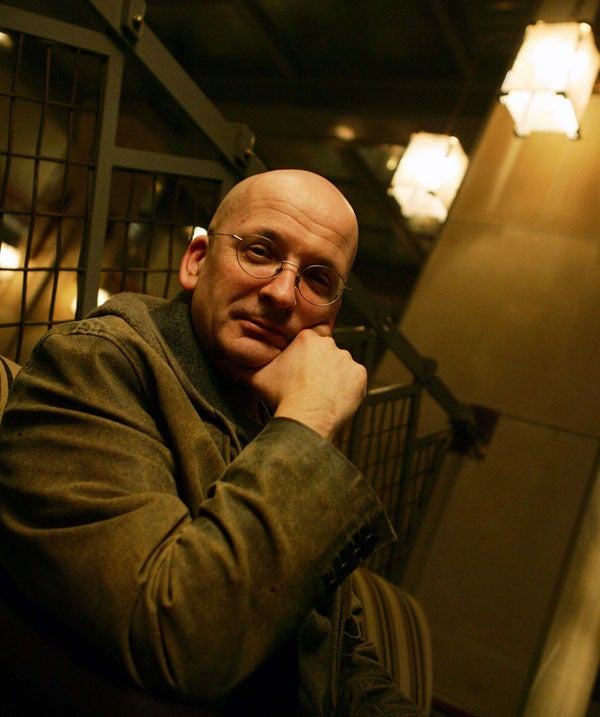The Dead Republic, By Roddy Doyle

The Dead Republic is the final part of Roddy Doyle's trilogy, The Last Roundup, which set out ten years ago to demolish the myth of Ireland. Part one, A Star Called Henry, has its over-the-top hero, Dublin-born Henry Smart, getting in on every Republican act from the Citizen Army to the Civil War, and accompanied everywhere by his dead father's wooden leg which serves as a weapon, acts as a talisman and comes in handy as a divining rod to enable Henry to get out of more than one tight spot.
The second book, Oh, Play That Thing, moves to 1920s America and a new rackety life for Henry, who acquires a wooden leg of his own following an accident with a boxcar. Now, at the start of The Dead Republic, it's 1951 and Henry is flying home in the company of John Ford, who plans to encapsulate the soul of Ireland in a film about Henry's revolutionary and eventful past - the GPO in Dublin, on the run in Roscommon - to be called The Quiet Man.
As we know, it didn't work out quite like that, as Ford gave in to American-Irish prettification to present a rather different version of the old country and its nationalist ethos. the real Henry, is still around - and stays around until well into the 21st century to observe the new Ireland, its diminution of spirit and dread goings-on in the North, a province as much cut off from the other three as Henry's leg is from the rest of him. The Dead Republic has a curious atmosphere, part heightened, demotic realism, part deadpan humour, part farrago. Henry has every conceivable role thrust upon him: republican hero, Provisional IRA fellow traveller, informer, double agent, dynamo, stooge, average well-intentioned citizen. In the last guise, he works as a caretaker at a boys' school on the outskirts of Dublin until the 1970s, while also holding down a job as a part-time gardener (coincidentally employed in this capacity by his long-lost wife and fellow revolutionary Miss O'Shea).
Henry remains an emblematic figure - "I was the plot," he asserts at one point - but emblematic of what? The twists and turns of Irish political life, or Irish expediency? It is hard to say. In fact, with this trilogy, Doyle has set himself an impossible task; and for all his verve and flashes of illumination, he has allowed his unwieldy subject matter (the course of 20th-century Irish history) to get on top of him.
Too much and too rich for the most part, The Dead Republic also allows scope for longueurs. You could compare this narrative to a train which keeps stalling for short periods when it isn't rushing headlong, out of control, into some mad realm or other.
Patricia Craig's memoir 'Asking for Trouble' is published by Blackstaff
Subscribe to Independent Premium to bookmark this article
Want to bookmark your favourite articles and stories to read or reference later? Start your Independent Premium subscription today.

Join our commenting forum
Join thought-provoking conversations, follow other Independent readers and see their replies